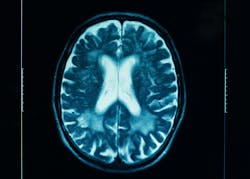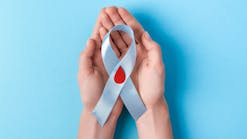The U.S. Food and Drug Administration approved Lenmeldy (atidarsagene autotemcel), the first FDA-approved gene therapy indicated for the treatment of children with pre-symptomatic late infantile, pre-symptomatic early juvenile or early symptomatic early juvenile metachromatic leukodystrophy (MLD).
Lenmeldy is a one-time, individualized single-dose infusion made from the patient’s own hematopoietic (blood) stem cells (HSCs), which have been genetically modified to include functional copies of the ARSA gene. The stem cells are collected from the patient and modified by adding a functional copy of the ARSA gene. The modified stem cells are transplanted back into the patient where they engraft (attach and multiply) within the bone marrow. The modified stem cells supply the body with myeloid (immune) cells that produce the ARSA enzyme, which helps break down the harmful build-up of sulfatides and may stop the progression of MLD. Prior to treatment, patients must undergo high-dose chemotherapy, a process that removes cells from the bone marrow so they can be replaced with the modified cells in Lenmeldy.
The safety and effectiveness of Lenmeldy was assessed based on data from 37 children who received Lenmeldy in two single-arm, open-label clinical trials and in an expanded access program. Children who received treatment with Lenmeldy were compared to untreated children (natural history). The primary efficacy endpoint was severe motor impairment-free survival, defined as the interval from birth to the first occurrence of loss of locomotion and loss of sitting without support or death. In children with MLD, treatment with Lenmeldy significantly reduced the risk of severe motor impairment or death compared with untreated children. All children with pre-symptomatic late infantile MLD who were treated with Lenmeldy were alive at 6 years of age, compared to only 58% of children in the natural history group. At 5 years of age, 71% of treated children were able to walk without assistance. Eighty five percent of the children treated had normal language and performance IQ scores, which has not been reported in untreated children. In addition, children with pre-symptomatic early juvenile and early symptomatic early juvenile MLD showed slowing of motor and/or cognitive disease.
The most common side effects of Lenmeldy are fever and low white blood cell count, mouth sores, respiratory infections, rash, medical line infections, viral infections, fever, gastrointestinal infections and enlarged liver.
After infusion with Lenmeldy, patients should be monitored for neutrophil counts and risk of delayed platelet engraftment until engraftment has been achieved. Treatment with Lenmeldy may be associated with formation of blood clots or a type of swelling of brain tissues known as encephalitis. There is a potential risk of blood cancer associated with this treatment; however, no cases have been seen in patients treated with Lenmeldy. Patients receiving this product should have lifelong monitoring for hematologic malignancies, including a complete blood count (with differential) annually and integration site analysis, as warranted, for at least 15 years after treatment.
The application received Priority Review, Orphan Drug, Rare Pediatric Disease and Regenerative Medicine Advanced Therapy (RMAT) designations.
The FDA granted approval of Lenmeldy to Orchard Therapeutics.





